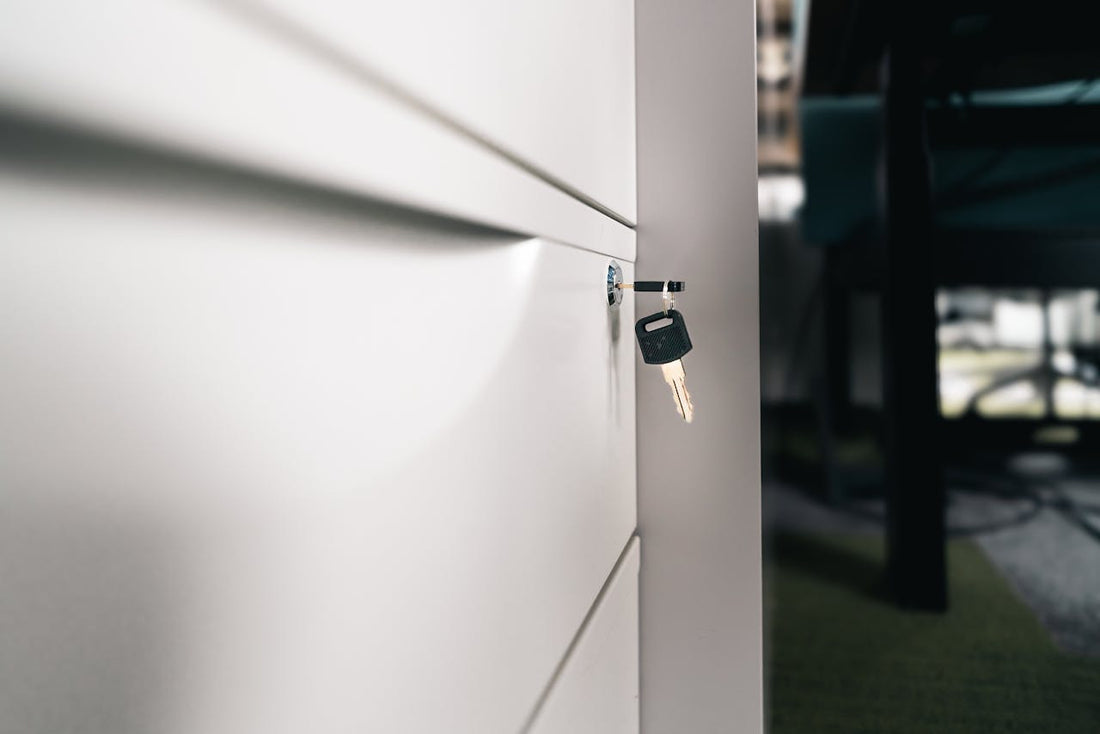
Does A Storage Unit Include Insurance?

Share
Storage units do not usually include insurance, however, this does vary by provider.
Whilst some companies may include it in the cost of storage, others will provide insurance options to their customers as an add-on.
However, excluding a few companies, it does tend to be the responsibility of the customer.
Here, we explore how storage insurance works, why it's important, and what it covers.
What is Storage Insurance?
Storage insurance is a contents insurance policy that covers any damage to items stored in a storage unit.
It safeguards these items against things like theft, fire, water damage or natural disasters. For many people, home insurance doesn’t cover items outside of the home, so getting extra insurance is important.
Many companies will ask for proof of storage insurance as part of the rental agreement. However, some companies, such as The Box Co. include insurance within the cost of the rental.
It’s important to read the fine print to understand exactly what a company provides, what they expect you to provide, and exactly how they keep your items safe whilst in storage.
Why is Storage Insurance Important?
It can be mandatory: Many storage companies say that customers must have insurance as part of their rental agreement. This covers them in case the items are damaged, lost or stolen.
Protection outside of home insurance: Standard home or business insurance does not usually cover items stored off-site. This means that in order to be protected, the items will need to be insured separately.
Risks: Storage facilities come with different risks than home insurance. As these facilities tend to be basic structures, they can come with risk of environmental damage, pest infestations or other structural issues.
As these don’t tend to be covered by home insurance, taking out a different policy is a good idea.
Peace of mind: Having insurance means that your valuables are protected from any unexpected events. This not only covers you financially, but can also protect any items that might hold sentimental value.

How Does Storage Insurance Work?
If you store with a company that doesn’t include insurance in their price, you’ll need to find some on your own. Here’s what you’ll need to do:
Step 1 - Find Your Insurance Provider: First thing’s first, you’ll need to either buy insurance through the storage facility, or shop around for policies elsewhere.
It might seem like an easier option to buy through your facility, but better coverage might be found elsewhere. Doing some research can help you get the best deal.
Step 2 - Item Declaration: Once you’ve found a provider, it’s important to declare all the items you’ll want covered in the insurance policy. If you don’t, this could lead to them not being covered, or the policy being void.
Step 3 - Checking Storage Requirements: If you’ve found a policy you like, and declared your items, you might need to find a storage facility that meets certain criteria.
For example, it’s not uncommon for insurers to only cover facilities that have proper security (locks, CCTV) and well-kept storage units (e.g., waterproof containers). This helps them reduce the risk of a claim through irresponsible storage companies.
What Does Storage Insurance Cover?
Storage insurance typically covers:
Fire: Damage caused by fire or accidental explosions.
Water Damage: From leaking pipes or flooding.
Theft and Vandalism: Including forced entry.
Natural Disasters: Storms, earthquakes, lightning and snow.
Structural Damage: From falling trees, lamp posts or building collapses.
What is Not Covered?
Not everything will be covered by storage insurance. For example:
Excluded items tend to include:
Cash, securities, and precious metals.
Flammable items.
Illegal items.
Food.
Live animals.
However, all excluded items are usually listed on the agreement, which can help you work out what is and isn’t covered.
The insurance company might also have some scenarios that it doesn’t cover, such as:
- Damage from improper storage.
- Losses due to war and terrorism.
- Items in unsecured or non-approved storage units.
Again, reading the fine print can help you avoid situations where your items are no longer covered.

How To Choose the Right Storage Facility and Insurance
There are a few things worth considering when shopping around for the right storage facility or insurance:
Facility Security:
If you’re choosing a storage unit, look for CCTV, gated access, and individual unit alarms. Alternatively, if you choose storage by the box, make sure you understand who is allowed in and out of the facility and what security measures are in place.
Location and Access:
Choose a convenient location with flexible access hours.
Size and Condition:
Make sure the unit is clean, ventilated and that the building is well looked after.
Insurance Options:
Compare facility-provided and independent insurance policies for coverage and cost.
Do You Need Storage Insurance?
While it’s not legally required, storage insurance is highly recommended and even mandatory for some companies.
Most storage providers will encourage their customers to take out coverage on their items, helping to protect them against any unexpected circumstances.
Storage Insurance: Is It Included
A storage unit does not always include insurance, but getting it is important to keep your items safe.
Whether it’s through a storage facility or a specialist insurer, make sure that you have the right coverage for your needs. It’s not only a smart move financially, but it also comes with peace of mind.
For storage prices with insurance included, get a free quote today with The Box Co. by contacting hello@theboxco.co.uk.



